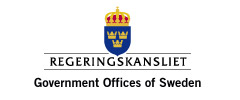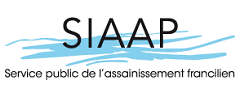Environmental Pollution kills 5 million children a year, says WHO
Lead causes neurological damage to 18 millions of others
26.10.2005 |Sascha Gabizon

Article by WWF World-Wide Fund for Nature
Toxic Pollutants kills 5 Million Children a year
Lead causes neurological damage to 18 millions of others (ANSA)
- Rome, October 20 -
Toxic pollutants kill at least five million children each year around the world and another 18 million suffer neurological damage because of lead poisoning, according to a top official with the World Health Organisation .
"An estimated 40% of the diseases in the world linked to environmental problems affect children below the age of five. Some five million young victims are felled each year," WHO's Deputy Director of Health and Environment Roberto Bertollini told Italy's Panda magazine .
"Children are most vulnerable to dangerous pollutants," he told the magazine, published by the World Wide Fund for Nature .
"Lead is the deadliest pollutant, and between 15 to 18 million children in developing countries suffer permanent neurological damage because of it," the WHO officials said .
Bertollini said the issue was one of WHO's top priorities, urging European legislators to devote greater attention to the problem. Earlier this year, the Italian cabinet approved the ratification of an international accord, bringing the country one step closer to outlawing several of the world's most dangerous pollutants .
The Aarhus protocol, which Italy has said it will incorporate fully into national legislation by the end of the year, will ban 12 so-called persistent organic pollutants (POPs), which are blamed for blood, liver and kidney disorders among other problems .
POPs are a group of highly toxic chemicals which are extremely resistant to the natural breakdown process. Once released into the environment, they often persist for years, even decades .
One particular problem with POPs is that they accumulate in the fatty tissues of animals and humans, so even low environmental levels of POPs can lead to high levels in animals and humans.
They are transported by air, water and migratory species, making them a cross-border problem requiring coordinated international action, experts say .
Italy was one of 22 nations to sign the Aarhus protocol in 1998 .
It requires reductions in pollution from the iron and steel industry, energy production, road transport and waste incineration, as well as lowering the quantities of the metals in items such as batteries, pesticides and paint .
It will result in an immediate ban on nine substances on the so-called "dirty dozen" list: aldrin, chlordane, chlordecone, dieldrin, endrin, hexabromobiphenyl, mirex and toxaphene .
A number of POPs have already been outlawed under the Stockholm Convention, which over 90 nations signed in May 2001, but according to the international environmental group Greenpeace, others have risen up to take their place .


































